Pierre Rolland: The Tour de France has become so bland
Interview with Frenchman on shifting his focus to stage wins
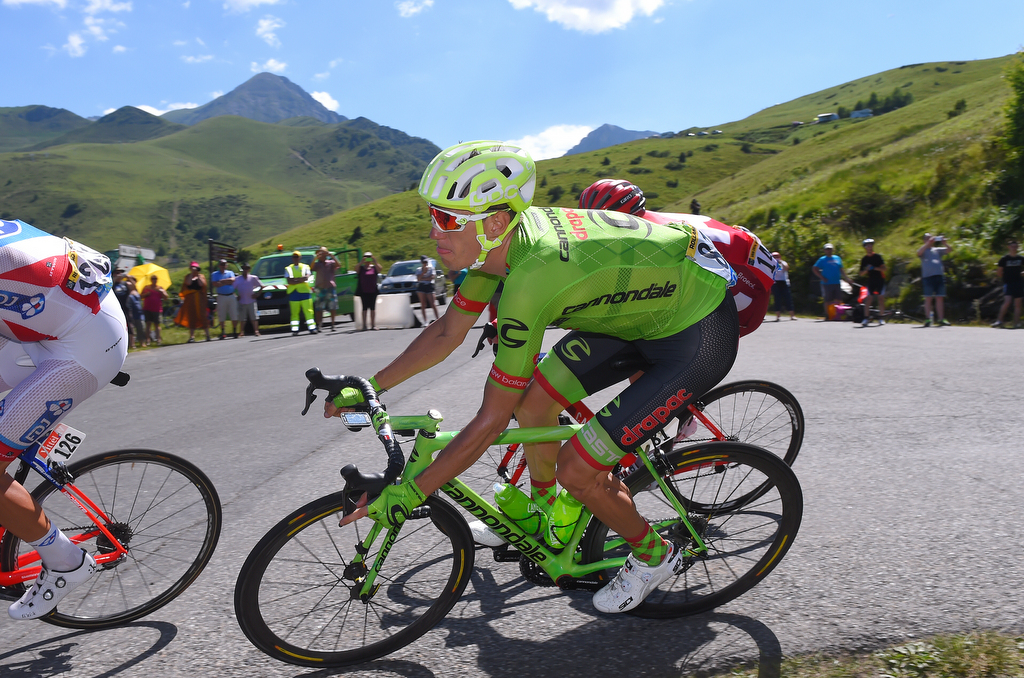
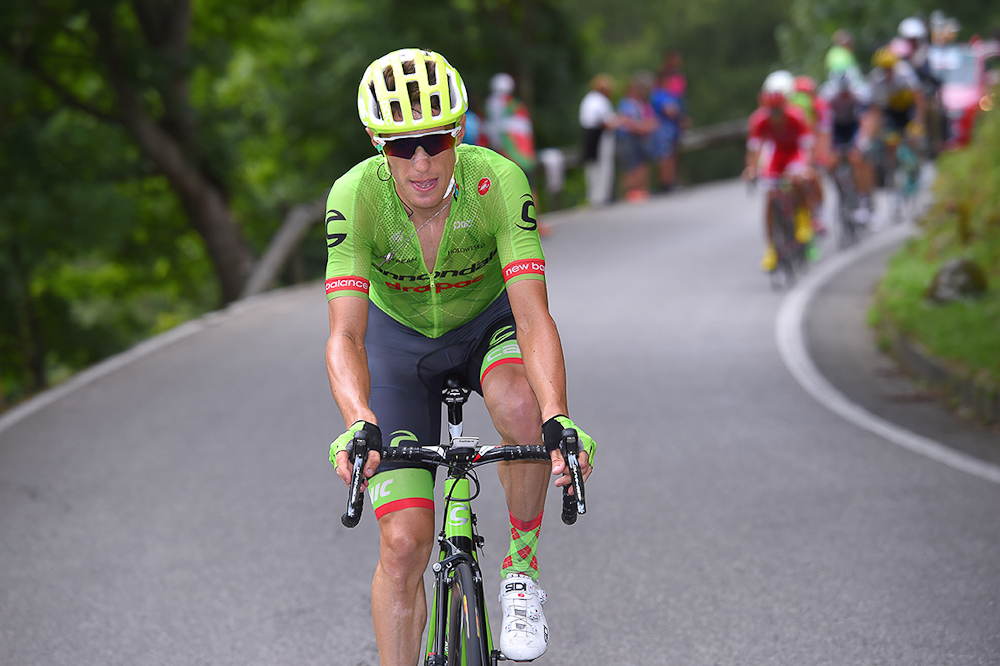
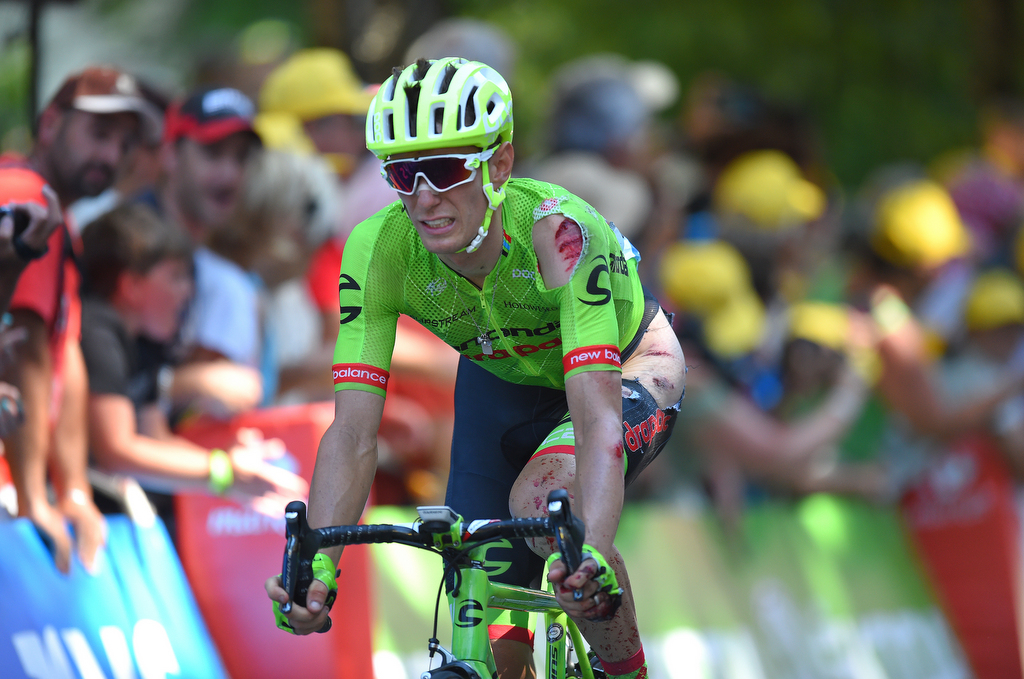
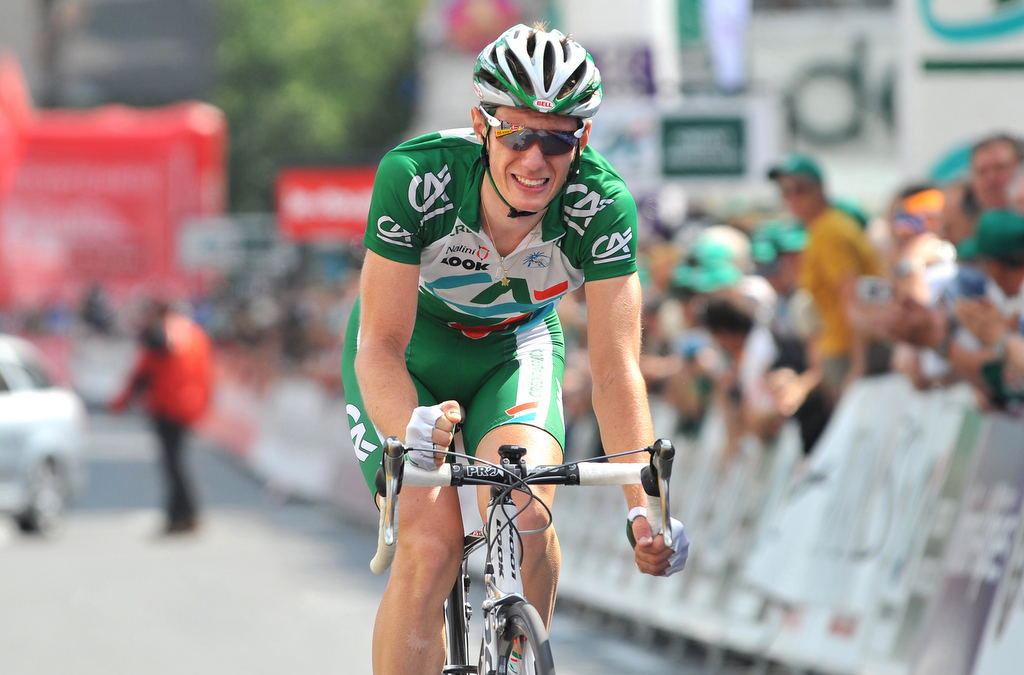
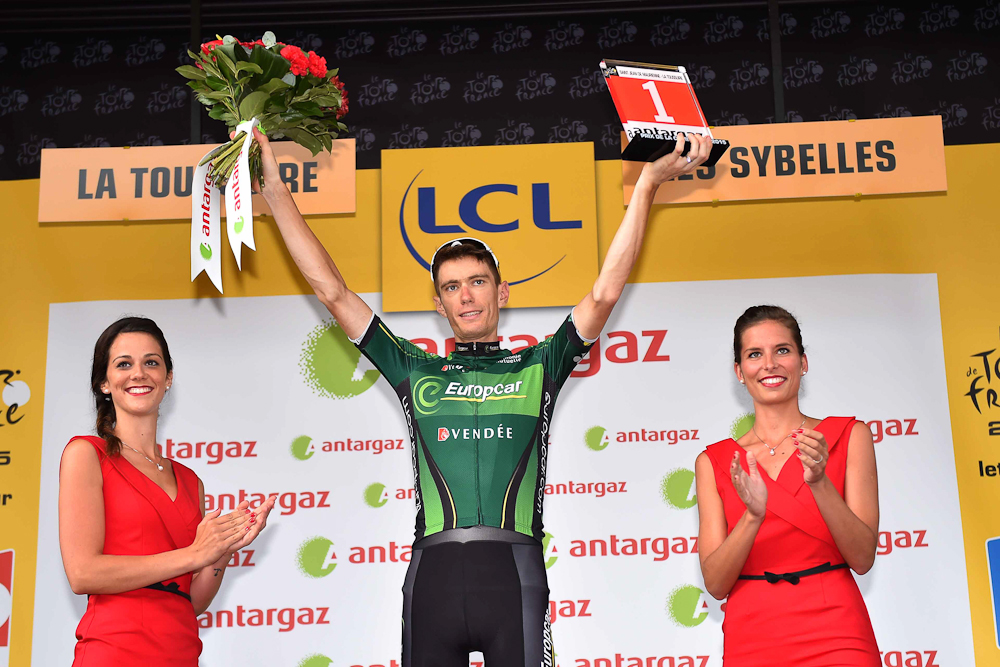
Pierre Rolland is one of the modern peloton's veterans of the Tour de France, having ridden the last eight editions, but even he is growing tired of La Grande Boucle.
It was revealed earlier this month that the Frenchman will relinquish all GC ambitions at the 2017 edition in favour of hunting stage wins – and perhaps the polka dot jersey – and will return to the Giro d'Italia with the same aim.
Despite enjoying what he describes as his "best start to a Tour de France" this year, before crashes derailed his campaign, he tells Cyclingnews that the Tour has become formulaic, dull, and simply not enjoyable for a GC rider.
"With the Tour it has become almost mathematical," he argues, speaking at Cannondale-Drapac's winter training camp in Catalunya.
"You could do a power test on all the riders and you'd come out with the exact GC, pretty much. It's so bland."
The problem, he reckons, began in 2012, the year Team Sky first truly clenched its iron fist and delivered Bradley Wiggins to a first British maillot jaune.
Chris Froome has since taken up the mantle, winning three of the last four Tours, and although he's arguably a more aggressive and open rider than Wiggins, Sky have continued to dominate proceedings with a stranglehold on the rest of the peloton.
Get The Leadout Newsletter
The latest race content, interviews, features, reviews and expert buying guides, direct to your inbox!
"You know exactly what's going to happen beforehand," says Rolland. "You know how a certain climb will be ridden, you know it'll pick up, then a descent, then the final climb it will just be ramped up. It lacks a bit of dynamism."
"For the GC riders, yes, it has become boring – almost the only thing you can do is follow."
It is put to him that his compatriot Romain Bardet's dramatic stage win in the Alps this year showed that there was still some room for manouevre, but Rolland isn't all too convinced.
"Sure, he had an opening, but because it was pouring down and there were crashes everywhere. If not there wouldn't have been a leader who attacked. Ok, maybe in the final kilometre, but what's the point then?"
"One opening in the whole Tour…Me, I don't identify with that brand of cycling."
Giro-Tour
Rolland will still be on the start line when the Tour de France peloton descends on Dusseldoorf next July, but he'll be there with a Giro d'Italia in the legs.
The 30-year-old has only ridden the Italian Grand Tour once – in 2014 – but he has happy memories, finishing fourth behind winner Nairo Quintana.
"The GC at the Giro is different," he says. "You can attack pretty much anywhere.
At the Tour you have nine riders from 20 teams and the 20 teams all come with the nine best riders they have. But in the Giro teams put maybe five top riders, one or two leaders, and two or three inexperienced riders doing their first Grand Tour, maybe.
"It's less controllable. The parcours also makes it more open; you have loads of small climbs everywhere on the route, rain, snow, maybe a stage on strade bianche, and the roads are generally worse. It's less bland."
In 2014 Rolland backed up his fourth place in Italy with 11th in France – no mean feat given the well-documented difficulty of the Giro-Tour double. This year, however, the sole focus will be stage victories.
"I just want to rediscover the feeling of winning," says Rolland, whose last and only Grand Tour victories came in the 2011 and 2012 Tours.
"I've finished in the top 10 at the Tour several times. I've been fourth at the Giro as well. Another top 10 at the Tour, I don't see what that brings to me."
Everything changed
Despite his assertions that he doesn't identify with what the Tour has become, Rolland isn't a stick in the mud, rooted in the old school. Last winter, at the age of 29, he traded in all that was familiar to him for a new dawn at the American Cannondale-Drapac team.
Rolland had spent the entirety of his career on French teams, turning pro with Credit Agricole and spending seven years at Jean-René Bernaudeau's Europcar team (now Direct Energie). Hungry for a new challenge and to broaden his horizons, he traded in the traditional Gallic way of doing things to adopt a more modern, scientific approach.
"It was a transition year," he says, looking back on the 2016 season. "Everything changed."
"This year was a little complicated, in all aspects, getting used to the different interval training, working more with power, nutrition as well.
"I did a lot of altitude camps and that was something new to me. In France, the culture, although it's changed a lot too, is more about race days. Maybe you go to a training camp before the Dauphiné to do some mountains, but that's it."
Despite the initial teething problems – and the "dreadfully long" rest days at Mount Teide on Tenerife – Rolland has no regrets about his decision to shake things up at this relatively late stage in his career.
"I'm really happy to have done it because I wanted to experience something else, another culture, another way of seeing the bike, another approach to things, a new challenge. I'm really happy I did it.
"Everything I was doing before, has pretty much all changed, but now it becomes easier for me.
"In 2016 I worked with a lot of information. Now I have my reference points accumulated over a year of working differently. I think now I've gathered all that information I can kick on and build next season."
Patrick is a freelance sports writer and editor. He’s an NCTJ-accredited journalist with a bachelor’s degree in modern languages (French and Spanish). Patrick worked full-time at Cyclingnews for eight years between 2015 and 2023, latterly as Deputy Editor.
